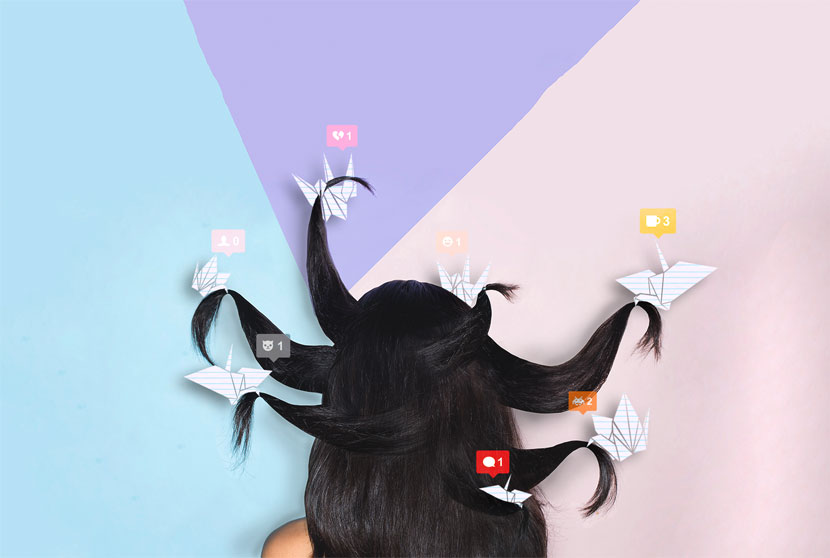This month, M1 Peer Pleasure Youth Theatre Festival presents youth-driven plays exploring issues of refugees, the influence of social media, mental illness, and the struggles of interracial relationships through 2 shows – Without Reason and Triple Bill.

A part of the Triple Bill performance, How Did I Mess Up This Bad: An Analysis aims to open up conversations on mental health issues and the stigmatization against it.
Featuring crowdsourced stories by youth collective, UNSAID, the play injects the personal experiences and struggles of people from all walks of life in hopes that the audience can better relate to the issue.
The UrbanWire caught up with the team behind How Did I Mess Up This Bad: An Analysis – playwright Ms Syafiqah Nabilah, director Ms Serena Ho and UNSAID executive director, Mr Timothy Seet – to hear their thoughts on the play.
1. You talk about exploring the attitudes towards mental illness. So, what do you think are Singaporean’s attitudes in general?
Syafiqah Nabliah: Speaking from my own experience as a student at a liberal arts college surrounded by young people who are very open and accepting, I would say that on campus at least there is some discussion about it and people who come forward with mental health issues usually receive support and help rather than ostracism. It’s definitely different outside of this bubble, which is why I think the type of discussion that happens inside it is important.
Timothy Seet: There is still a lot of stigmatization against mental health issues. For example, if a person declare himself as having depression at his workplace, people around him will see him in a different light. They will ask, ‘Can you handle the promotion?’, ‘Can you handle the work?’. So, some of the stories that we’ve received talked about how they had to lie about their mental health status, as they were very certain that their employers would not be able to handle this or figure out a way to work with them. People need to understand that just because someone has a mental health issue, it does not make him any less valuable or hardworking than someone else.
Serena Ho: I think there’s still a stigma of mental illness amongst the older generation. In contrast, young people are more open, they feel that they can talk about it, while the older generation still have a really negative idea of mental illness.
2. What was the biggest challenge that you faced during the production?
Syafiqah Nabliah: A challenge I had was that I chose to make it a comedy because I think a lot of the discourse around mental illness and art that is made about it is quite dark and I wanted to change that up a bit. But I was worried it would come across as insensitive or trivializing, so I had to be a bit careful with that.
Timothy Seet: It was difficult gathering stories. With mental health issues, it was just simply not talked about, unless you are an advocate of it. Basically people were more fearful to talk about it. It was also hard to find stories from the older generation as most of them were so closed off and unwilling to share about these topics.
One major thing we realized from the crowdsourcing experience was that the narrative of mental health issues is always about suicide or being crazy. People don’t understand that with mental health issues, it’s a whole spectrum and it’s a lot more nuanced.
3. Why use theatre to present mental health issues?
Timothy Seet: The whole concept of theatre creates discussion. When a play is presented to the audience, there is a lot more intimacy and it also allows for a deeper connection with the issue, which provokes thoughts and conversations. Also, with plays, you tend to have a captive audience. As the play progresses, the audience go through the journey with the characters and can then better relate to the situations, giving them a better understanding of the issue.
Serena Ho: I think with theatre, it’s a shared experience. In theatre, the audience responds. The experience itself is a shared thing that helps break down barriers. I think that’s quite precious and is something that only theatre can do.
4. What do you hope to achieve with this play?
Timothy Seet: The biggest message that UNSAID wants to convey, besides raising awareness, is to have sympathy for people, and from there, try to find ways to empathize and understand. On a broader scale, we hope the play would encourage people to discuss these social issues and not be scared to talk about these issues. Our goal is to spark conversations; it’s through these conversations can we progress towards change.
Serena Ho: I hope it will provoke some self-reflection and self-evaluation. I hope people will watch the play and think, ‘Is this considered mental illness?’, ‘Is this considered crazy?’, or even ‘This person might actually be normal.’ It’s a fine line and I hope people can think and reflect on that.
The UrbanWire has a pair of tickets to give away!
Stand a chance to win a pair of tickets to the play, Without Reason.
Without Reason
Date: 4 August 2017
Time: 3 pm
Venue: Esplanade Theatre Studio
Simply follow these steps:
- Like The UrbanWire Facebook page
- Like and share the post with the hashtag #m1peerpleasure (the post must be public)
- Like the M1 Peer Pleasure Festival page
- Share with us why you would like to catch the play in the comments section below!
This contest will end on 31 July 2017, 12 pm.
